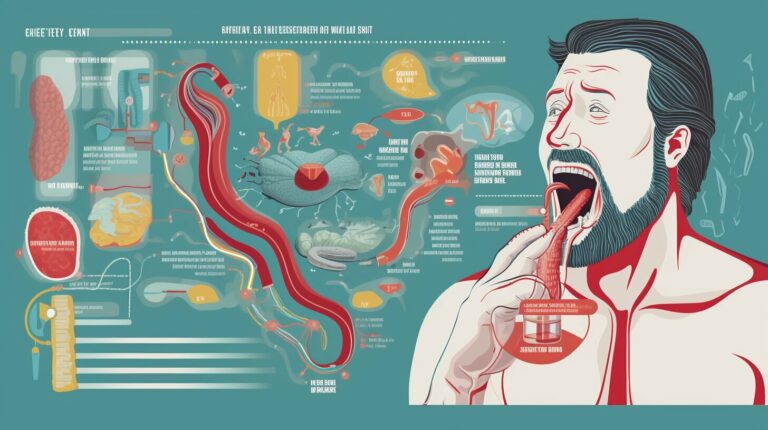Unraveling Life’s Paradox: Why Do Good Things Happen to Bad People?
Have you ever wondered why good things seem to happen to bad people? It’s a question that has puzzled thinkers for centuries and continues to challenge our understanding of the world.
The paradox of why good things happen to bad people is a fascinating topic that delves into the philosophical perspective and moral dilemma associated with this perplexing phenomenon. As we explore this paradox, we begin to understand that there are various factors at play, each contributing to the complex tapestry of life. From societal influence to individual psychology, from the belief in karma to the role of luck and chance, these elements intertwine to create a truly intriguing conundrum.
Key Takeaways:
- Good things happening to bad people has been a question that has intrigued scholars for ages.
- Understanding the paradox requires exploring various factors such as societal influence and individual psychology.
- The belief in concepts like karma and divine justice can also shed light on this paradox.
- The role of luck and chance cannot be ignored when considering why good things happen to bad people.
- The paradox of ethics in organizations adds another layer to this conundrum, where a good organization can sometimes lead to unethical behavior.
Exploring the Psychological Explanation
One possible explanation for this paradox lies in the realm of psychology, where societal influence and individual psychology intertwine to shape outcomes. Society, with its norms, values, and expectations, plays a significant role in shaping our behavior and the consequences we experience. Our individual psychology, including our beliefs, attitudes, and motivations, also influences our actions and the outcomes we attract.
Societal influence can lead to the phenomenon of good things happening to bad people. People who engage in unethical behavior may benefit from societal structures and systems that reward certain actions or disregard the unethical nature of their behavior. For example, individuals who prioritize personal gain over ethical considerations may exploit loopholes in legal systems or take advantage of power dynamics in organizations to achieve success.
At the same time, individual psychology contributes to the paradox. People’s values, personality traits, and cognitive biases can shape their actions and attract positive outcomes, regardless of their ethical standing. Research has shown that individuals with characteristics like charisma, confidence, and assertiveness are more likely to succeed and be rewarded, regardless of their moral compass.
| Societal Influence | Individual Psychology |
|---|---|
| Norms and values reward certain behavior | Personal values and beliefs shape actions |
| Unethical actions can be overlooked or rewarded | Positive traits like charisma can attract success |
| Power dynamics in organizations can benefit unethical behavior | Cognitive biases may influence decision-making |
In conclusion, understanding the psychological factors behind why good things happen to bad people provides insight into this intriguing paradox. Societal influence and individual psychology intertwine, creating a complex web of factors that shape outcomes. By acknowledging these influences, we can better understand the dynamics at play and explore strategies for addressing the ethical challenges that arise in our society.
The Belief in Karma and Divine Justice
Many people find solace in the belief that karma and divine justice will eventually balance the scales, even if it may not seem so in the present moment. The concept of karma, originating from ancient Indian philosophy, suggests that one’s actions have consequences that will be experienced in this or future lives. It is believed that good actions lead to positive outcomes, while bad actions result in negative consequences. Therefore, those who engage in immoral behavior may experience temporary success, but their ultimate fate will be determined by the universal principle of karma.
Similarly, the belief in divine justice asserts that a higher power or divine entity will ultimately ensure that justice is served. This belief is often rooted in religious or spiritual interpretations, where it is believed that a divine force oversees human actions and holds individuals accountable for their choices. According to this belief, the apparent success of bad people may be a test or a temporary illusion, and their true fate will be determined in the afterlife or through divine intervention in this world.
“The belief in karma and divine justice provides individuals with hope and reassurance in the face of life’s paradoxes. It offers a sense of justice and fairness, even when the world seems unfair.” – Anonymous
These beliefs provide individuals with a sense of hope and reassurance in the face of life’s paradoxes. They offer a sense of justice and fairness, even when the world seems unfair. The belief in karma and divine justice also serves as a moral compass, encouraging individuals to engage in good deeds and uphold ethical values, knowing that their actions will have repercussions.
| Karma Belief | Divine Justice |
|---|---|
| Originates from ancient Indian philosophy | Rooted in religious or spiritual interpretations |
| Actions have consequences in this or future lives | A higher power holds individuals accountable |
| Temporary success but ultimate fate determined by karma | Belief in divine intervention or justice in the afterlife |
Summary
- Many people find solace in the belief in karma and divine justice, which suggests that the scales of fairness will eventually be balanced.
- Karma, originating from ancient Indian philosophy, asserts that one’s actions have consequences that will be experienced in this or future lives.
- The belief in divine justice holds that a higher power or divine entity ensures that justice is ultimately served, either in the afterlife or through intervention in this world.
- These beliefs provide hope, reassurance, and a sense of justice in the face of life’s paradoxes, encouraging individuals to engage in good actions and uphold ethical values.
The Role of Luck and Chance
Sometimes, it’s simply a matter of luck and chance that good things happen to bad people, as random events can often shape our lives in unpredictable ways. It’s not always easy to reconcile this concept with our sense of justice, but it is a reality that we must acknowledge. In the grand scheme of things, the universe operates according to its own mysterious patterns, and sometimes those patterns align in favor of individuals who may not necessarily deserve it.
Consider the case of a person who has made poor choices throughout their life, yet suddenly finds themselves in a fortunate circumstance. Perhaps they stumble upon a winning lottery ticket or receive a generous job offer out of the blue. These occurrences may seem unfair to those who believe in a just world, but they highlight the inherent randomness of life.
As philosopher Seneca once said, “Luck is what happens when preparation meets opportunity.” While bad people may not always be prepared for the good things that come their way, chance can still intervene and throw them a favorable outcome.
In understanding the role of luck and chance, we must also acknowledge that they are not exclusive to bad people. Good people can also experience setbacks and misfortunes, despite their best efforts. The unpredictability of life is a reminder that we are all vulnerable to the whims of fate.
| Luck and Chance Effects | Theories |
|---|---|
| The Gold Digger Effect: When bad people happen to stumble upon good fortune, they may be tempted to exploit or misuse it for their own selfish gain. | The Theory of Unexpected Opportunities: This theory suggests that random events can create opportunities that may not have been possible through intentional efforts. |
| The High-Jump Bar Effect: Good things happening to bad people can raise the expectations and standards of behavior for those individuals, pushing them to perform better and overcome their negative traits. | The Theory of Incongruent Outcomes: This theory proposes that unexpected positive outcomes can challenge a person’s self-perception and motivate them to align their behavior with their newfound success. |
While it can be disheartening to witness good things happening to bad people, it is important to remember that life is not always fair or just. Our role is to focus on our own actions and choices, striving to be the best versions of ourselves, regardless of external circumstances. By cultivating resilience and embracing the unpredictability of life, we can navigate its twists and turns with grace and integrity.
The Paradox of Ethics in Organizations
Within organizational settings, the paradox of ethics emerges as a good organization paradoxically becomes a breeding ground for unethical behavior. It seems counterintuitive that a company built on principles of integrity and ethical conduct can sometimes be plagued by individuals who engage in morally questionable actions. This paradox raises intriguing questions about the dynamics of organizational behavior and the factors that contribute to unethical conduct.
One possible explanation for this paradox lies in the concept of the “good barrel” approach. Instead of attributing unethical behavior solely to the inherent badness of individuals, this approach suggests that the goodness of the organization itself can influence employee behavior. A good organization may unintentionally create an environment where unethical behavior goes unnoticed or is rationalized. Employees might feel compelled to compromise their values in order to meet performance targets or conform to the prevailing culture.
When examining the threatening forces within ethical organizations, we can identify four key dimensions: upward forces, downward forces, backward forces, and forward forces. Each force has its own effects and is backed by specific theories. For example, the “gold digger effect” illustrates how employees might exploit the ethical organization’s resources for personal gain, while the “high-jump bar effect” demonstrates how individuals may engage in unethical behavior to maintain their upward mobility within the organization.
| Threatening Forces | Effects |
|---|---|
| Upward forces | Gold digger effect |
| High-jump bar effect | |
| Downward forces | Diffusion of responsibility effect |
| Toxic trickle-down effect | |
| Backward forces | Nostalgic effect |
| Resistance to change effect | |
| Forward forces | Boundary-breaking effect |
| Overcommitment effect |
In light of this paradox of ethics, further research is needed to better understand and address unethical behavior within organizations. By exploring the interplay between organizational culture, individual choices, and external influences, we can develop strategies to create ethical environments that minimize the occurrence of unethical behavior. Through ongoing research and analysis, we can strive to navigate the complexities of organizational ethics and create organizations that cultivate both goodness and integrity.
The Threatening Forces in Ethical Organizations
To understand the dynamics behind unethical behavior in ethical organizations, we must explore the four threatening forces that become amplified in such settings. These forces, known as the upward, downward, backward, and forward forces, pose challenges to maintaining ethical conduct within an organization.
The upward forces refer to the pressure employees may feel from superiors or higher-ranking individuals to engage in unethical behavior. This can stem from a desire to please those in power or to meet unrealistic performance expectations. The high-jump bar effect exemplifies this force, where individuals may resort to unethical actions to meet high standards set by the organization or its leaders.
The downward forces, on the other hand, emerge from interactions between employees at different hierarchical levels. These forces can arise from a sense of competition or a desire for personal gain, leading individuals to engage in unethical behavior to get ahead or protect their own interests. The gold digger effect captures this force, where individuals may exploit others or manipulate situations for personal benefit.
Additionally, ethical organizations may face challenges from the backward and forward forces. The backward forces represent external pressures from stakeholders, such as shareholders or clients, that can influence an organization’s ethical behavior. These pressures may come in the form of financial incentives or expectations for increased profitability, potentially compromising ethical standards. The forward forces, on the other hand, refer to internal pressures and expectations for growth and innovation within the organization. These forces can create a climate where individuals feel compelled to cut corners or engage in unethical behavior in pursuit of progress.
| Threatening Forces | Effects |
|---|---|
| Upward Forces | High-jump bar effect: Unethical actions to meet high standards |
| Downward Forces | Gold digger effect: Exploitation for personal gain |
| Backward Forces | External pressures compromising ethical standards |
| Forward Forces | Internal pressures for growth and innovation leading to unethical behavior |
Understanding these threatening forces is crucial for organizations striving to maintain ethical standards. By recognizing and addressing the pressures that can lead to unethical behavior, organizations can create a culture that fosters integrity and ethical decision-making. Additionally, awareness of these forces opens new avenues for research and exploration, enabling us to develop strategies to mitigate their impact and promote ethical conduct in organizations.
Conclusion
In conclusion, the paradox of ethics poses a complex challenge for organizations, where the pursuit of goodness can paradoxically lead to unethical behavior. This article has explored the concept of the “good barrel” approach, which provides a new perspective on understanding why good things happen to bad people in organizational settings.
By shifting the focus from individual badness to the goodness of the organization, this approach highlights how the very attributes that make an organization good can inadvertently contribute to unethical behavior. It challenges our conventional understanding of ethics and raises important questions about the role of organizational culture and influence in shaping employee behavior.
Moreover, this article has identified four threatening forces that become stronger when an organization becomes more ethical: the upward, downward, backward, and forward forces. These forces, illustrated with effects like the gold digger effect and the high-jump bar effect, shed light on the complex dynamics at play within ethical organizations.
Understanding the paradox of ethics opens up new research directions for studying unethical behavior in organizations. It calls for further exploration into the interplay between individual and organizational factors, as well as the development of effective strategies to mitigate the negative consequences of this paradox.
FAQ
Why do good things happen to bad people?
The question of why good things happen to bad people is a philosophical paradox that has puzzled humanity for centuries. While there is no definitive answer, various perspectives suggest psychological, spiritual, and chance-based explanations.
How does societal influence contribute to the paradox?
Societal influence plays a significant role in shaping outcomes. Factors such as power dynamics, social norms, and cultural values can influence the distribution of good things, sometimes leading to seemingly undeserved rewards for individuals with questionable moral character.
What is the role of karma and divine justice in this paradox?
Many individuals interpret the paradox through the lens of karma and divine justice. The belief in karmic patterns or a higher power balancing the scales of justice provides a spiritual explanation for the seemingly unjust distribution of good things.
How does luck and chance contribute to this paradox?
Random events and chance occurrences can often influence outcomes, leading to the perception that good things happen to bad people. Sometimes, individuals may find themselves in favorable circumstances purely by luck, regardless of their moral character.
How can a good organization lead to unethical behavior?
The “good barrel” approach suggests that when an organization is perceived as good or ethical, it can create an environment where individuals feel more comfortable engaging in unethical behavior. This contradiction arises due to various threatening forces that become stronger in more ethical organizations.
What are the threatening forces in ethical organizations?
In ethical organizations, certain forces can paradoxically contribute to unethical behavior. These include upward forces (such as ambition and competition), downward forces (such as pressure from higher-ups), backward forces (such as organizational history and culture), and forward forces (such as future aspirations). These forces can manifest in effects such as the gold digger effect and the high-jump bar effect, which are explained by specific theories.
What are the implications of this paradox for research and understanding unethical behavior in organizations?
The paradox of ethics in organizations highlights the need for further research to understand and address unethical behavior. By acknowledging the complex dynamics at play, researchers can explore new directions and strategies for fostering ethical behavior in organizational settings.






